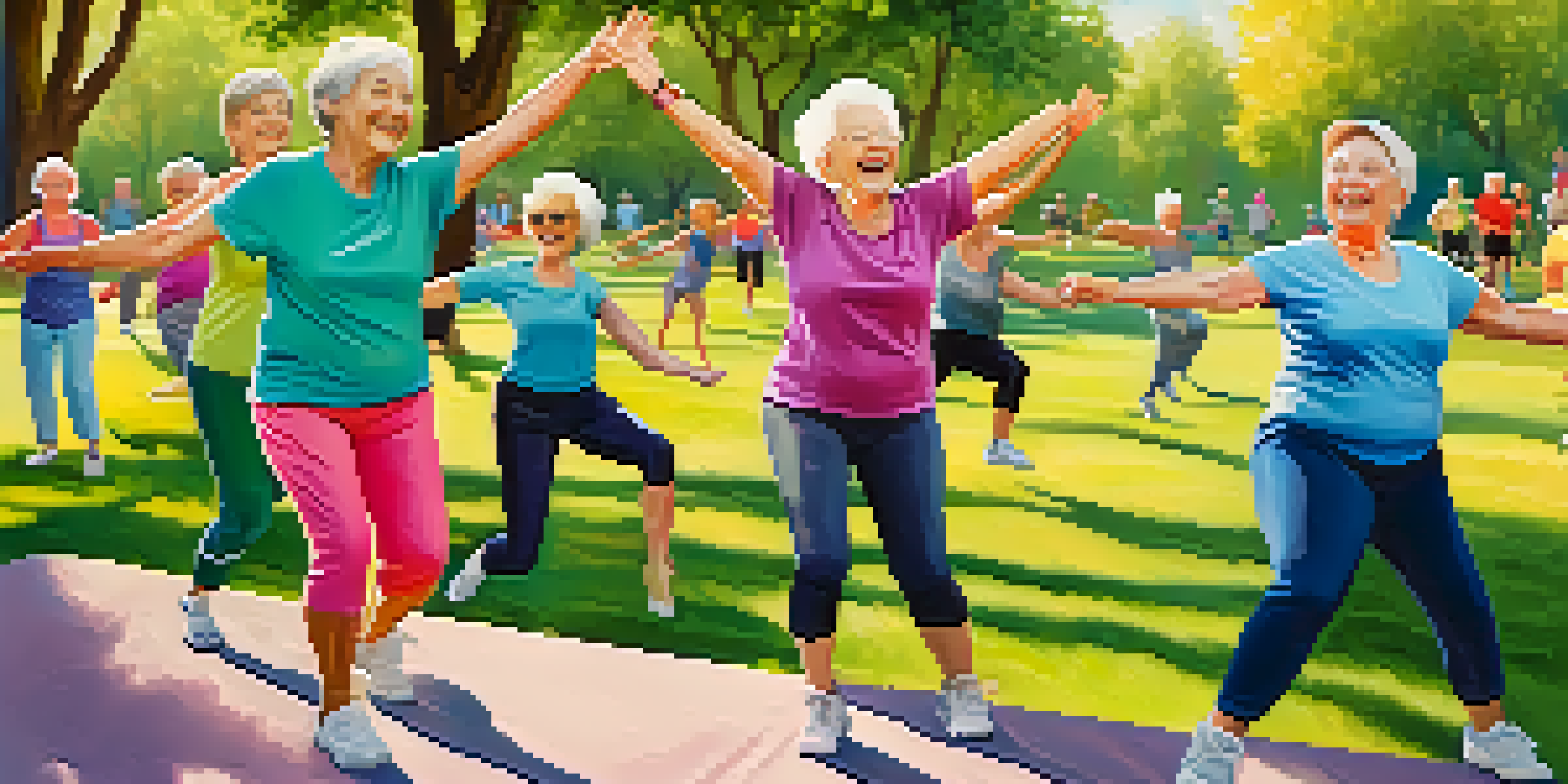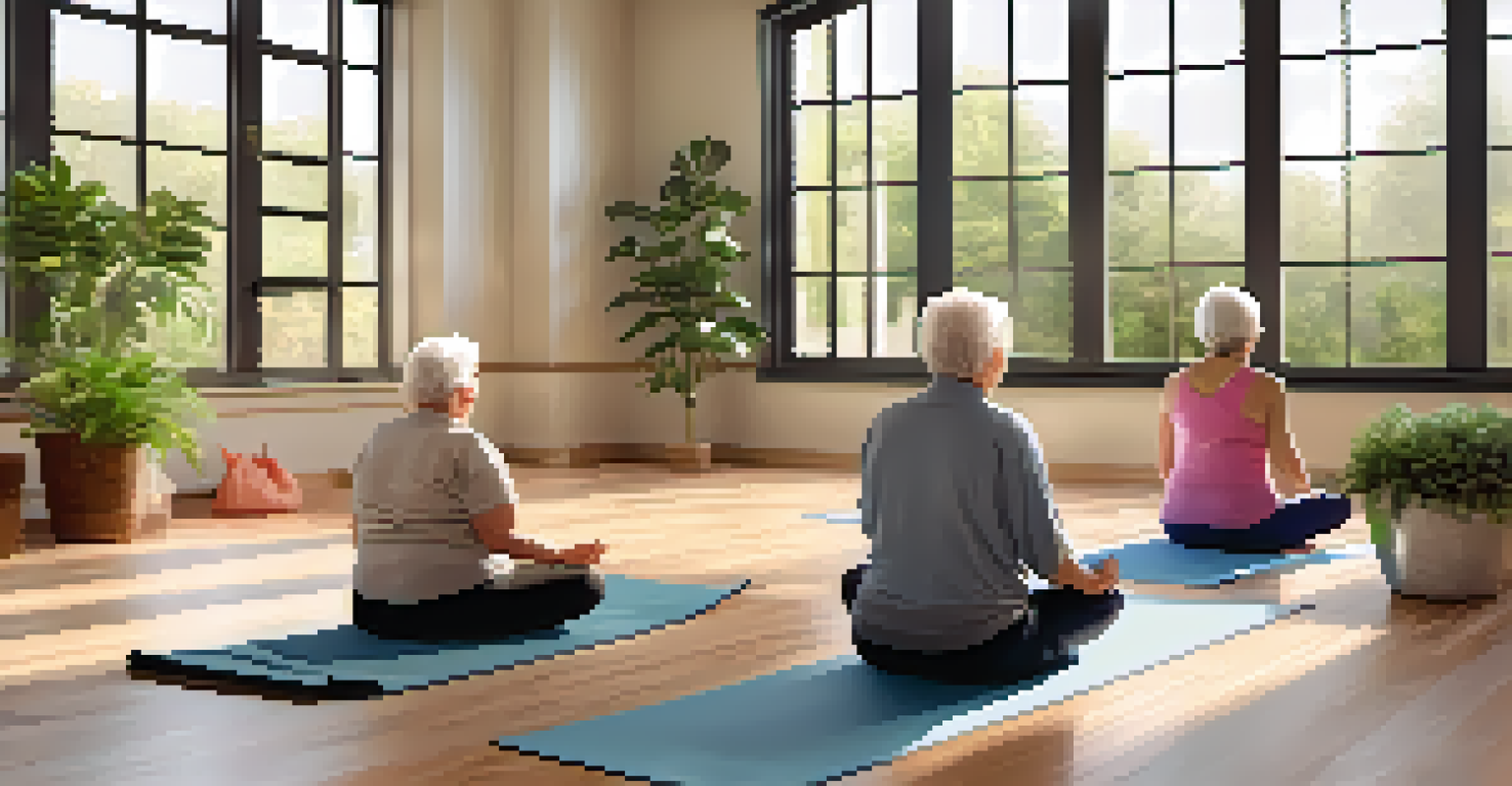Creating Fitness Challenges for Seniors: Fun and Engaging

Understanding the Importance of Fitness for Seniors
Fitness plays a crucial role in the overall health and well-being of seniors. Regular physical activity helps maintain mobility, balance, and strength, reducing the risk of falls and injuries. Moreover, engaging in fitness can combat feelings of isolation and depression, promoting a more active and fulfilling lifestyle.
Physical fitness is not only one of the most important keys to a healthy body, it is the basis of dynamic and creative intellectual activity.
It's essential to recognize that seniors have unique fitness needs. Their bodies may have different limitations compared to younger individuals, making it important to tailor challenges that are both safe and enjoyable. This understanding sets the foundation for creating effective and engaging fitness challenges.
Additionally, fostering a sense of community through fitness can be incredibly motivating. When seniors participate in group challenges, they not only work on their physical health but also build friendships and support networks, making exercise a social and enjoyable activity.
Setting Realistic Goals for Fitness Challenges
When creating fitness challenges for seniors, it’s vital to set realistic and achievable goals. This ensures that participants feel accomplished rather than overwhelmed. For instance, a walking challenge could focus on gradually increasing distance over several weeks rather than expecting immediate long-distance runs.

It's helpful to involve participants in goal-setting. Ask seniors what they hope to achieve through these challenges, whether it’s improving flexibility, enhancing endurance, or simply having fun. This inclusive approach encourages ownership and commitment to the challenge.
Fitness Enhances Seniors' Well-Being
Regular physical activity improves mobility, reduces fall risks, and fosters social connections among seniors.
Moreover, celebrating small victories along the way can boost motivation and engagement. Recognizing participants' achievements, no matter how minor, creates a positive environment that fosters continuous improvement and encourages them to push their boundaries.
Incorporating Variety in Fitness Challenges
Variety is key to keeping fitness challenges exciting and engaging for seniors. Incorporating different activities—like yoga, dancing, or even chair exercises—can cater to varying interests and abilities. By mixing things up, you can capture the attention of those who might otherwise feel bored with repetitive routines.
The greatest wealth is health.
Consider organizing themed challenges to maintain excitement. For example, a 'Dance Around the World' challenge could introduce different dance styles from various cultures each week. This not only adds variety but also provides a fun learning opportunity.
Additionally, introducing friendly competition can spice things up. Create teams for challenges, encouraging camaraderie and interactions. Friendly rivalries can motivate seniors to participate more actively and enjoyably.
Utilizing Technology for Fitness Engagement
In today's digital age, technology can play a pivotal role in enhancing fitness challenges for seniors. Simple apps or wearable devices can help track progress and keep participants motivated. For instance, a step-tracking app can help seniors visualize their improvements over time.
Virtual classes are another fantastic option, especially for those who may have mobility issues or prefer exercising at home. Many online platforms offer tailored workouts specifically designed for seniors, ensuring they remain active in a comfortable environment.
Set Realistic Goals for Success
Establishing achievable fitness goals helps seniors feel accomplished and motivated throughout their fitness journey.
However, it's crucial to provide guidance on using technology. Offer tutorials or support to help seniors navigate these tools, ensuring they can fully engage without feeling overwhelmed by the tech side of things.
Creating a Supportive Fitness Community
A supportive community can make all the difference in a senior's fitness journey. Encourage group participation in challenges to foster a sense of belonging and shared purpose. When seniors work together, they motivate each other and celebrate successes as a team.
Consider establishing a buddy system where participants pair up for challenges. This not only enhances accountability but also helps build friendships, making fitness a social and enjoyable experience. Having someone to share the journey with can be incredibly encouraging.
Moreover, regularly sharing stories and experiences within the community can inspire others. Highlighting individual achievements, no matter how small, can motivate the entire group and reinforce the importance of staying active together.
Adapting Challenges for Different Abilities
It's essential to recognize that seniors come with a range of abilities and fitness levels. When designing challenges, ensure they can be easily adapted to accommodate everyone. For instance, a walking challenge could allow for varying distances or even seated exercises for those with mobility limitations.
Offering modifications is key to inclusivity. For example, during a strength training challenge, provide options for using lighter weights or resistance bands instead of heavier equipment. This ensures that everyone feels capable of participating without risking injury.
Community Support Boosts Engagement
Creating a supportive fitness community encourages participation and celebrates individual achievements, enhancing motivation.
Additionally, regularly solicit feedback from participants about the challenges. This allows you to make necessary adjustments and ensure that the activities remain enjoyable and accessible for all.
Celebrating Achievements and Progress
Celebrating achievements is a powerful motivator for seniors participating in fitness challenges. Whether it’s a small recognition during a group meeting or a fun awards ceremony at the end of a challenge, acknowledging progress fosters a sense of accomplishment.
Consider implementing a reward system for milestones achieved, such as certificates or tokens. These tangible reminders of their hard work can boost seniors' confidence and encourage continued participation in future challenges.

Moreover, sharing success stories can inspire others. Highlighting individuals' transformations, whether physical or emotional, can motivate the entire community and reinforce the benefits of staying active together.